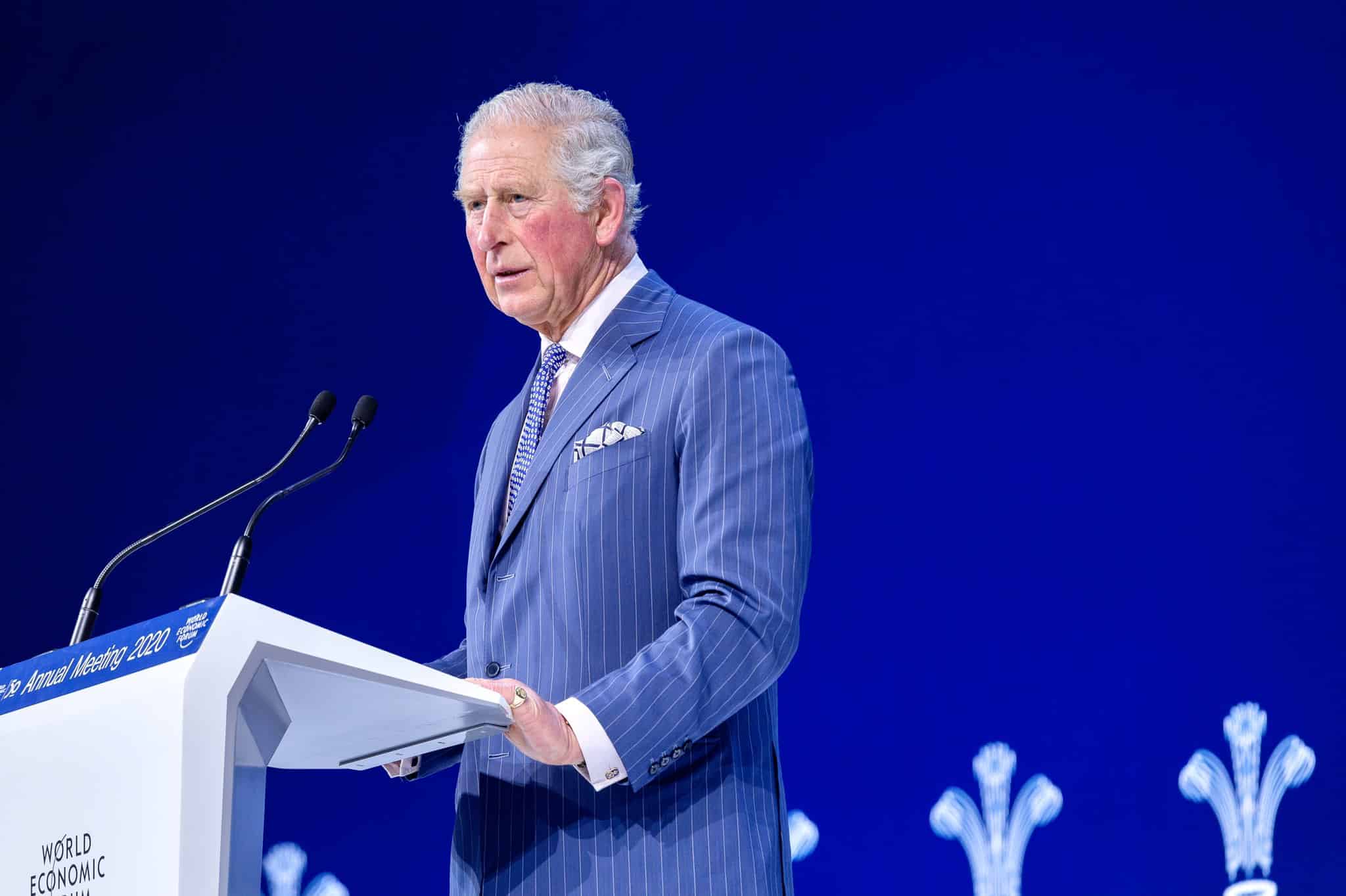Prince Charles calls for “paradigm shift” to avert climate catastrophe

Today at the World Economic Forum in Davos, Prince Charles called for urgent transformation of the global economy to avert climate catastrophe. He listed 10 practical steps businesses and governments can take which support his new Sustainable Markets Initiative to put people and planet first.
Demanding “nothing short of a paradigm shift, one that inspires action at revolutionary levels and pace”, His Royal Highness The Prince of Wales nodded to electric vehicles, space travel, mobile technology and online streaming as examples of rapid industry transformation.
In his first keynote address in 30 years, Prince Charles said that with “bold and imaginative action” together with “decisive leadership”, the green economy offers “new employment opportunities, entire new industries and markets rooted in sustainability […] with the potential for unprecedented economic growth”.
During his emotional speech at the World Economic Forum event, Prince Charles introduced the Sustainable Markets Initiative, which he says puts “people and planet at the heart of global value creation”.
He explained the Initiative: “Sustainable markets generate long-term value through the balance of natural, social, human and financial capital. Systems-level change within sustainable markets is driven by consumer and investor demand, access to sustainable alternatives and an enhanced partnership between the public, private and philanthropic sectors. Sustainable markets can also inspire the technology, innovation and scale that we so urgently need.”
He outlined “10 practical actions” that will drive the sustainable markets approach:
- Put nature’s capital at the centre of business models, decisions and actions.
- Outline responsible transition pathways to decarbonise across sectors and nations.
- Reimagine industries using a sustainable markets framework, based on a circular bioeconomy.
- Identify game-changing technologies as well as policy, regulation, infrastructure and investment barriers to transition.
- Reverse fossil fuel subsidies and improve sustainable incentives.
- Invest in STEM projects and R&D on innovative technologies and solutions.
- Invest in nature as a “true engine of our economy” with nature-based solutions, including in agriculture, forestry and fisheries,
- Adopt common global metrics and standards for goods and services.
- Make the sustainable option the “trusted and attainable option” for consumers.
- Connect investors to sustainable projects.
Prince Charles said Sustainable Markets are his priority for 2020 and beyond, but applauded wider innovative projects such as the new Earthshot initiative of his son, The Duke of Cambridge.
He ended his powerful speech by warning that in order to bring sustainable markets into action during the 2020 ‘super year’, that urgency, systemic change and collaboration are critical. He concluded: “Do we want to go down in history as the people who did nothing to bring the world back from the brink in time to restore the balance when we could have done? I don’t want to.
“And just think for a moment – what good is all the extra wealth in the world, gained from ‘business as usual’, if you can do nothing with it except watch it burn in catastrophic conditions?”
Greenhouse PR works with organisations and leaders who are pioneering climate action. Whether it’s energy, fashion, finance or farming, if you’ve got a great story and need our help to tell it, get in touch with the Greenhouse team on 0117 214 1250 or email info@greenhousepr.co.uk.


